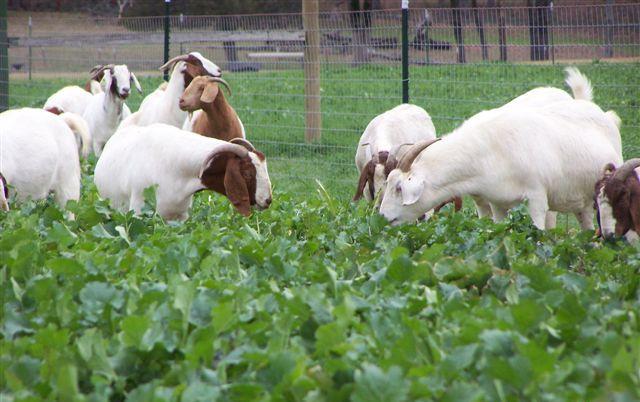Dr. Dan Quadros
Asst. Professor - Small Ruminants
Phone: 501-425-4657
Fax: 501-671-2185
Email: dquadros@uada.edu
University of Arkansas System
Division of Agriculture
Cooperative Extension Service
2301 S. University Ave.
Little Rock, AR 72204

An effective animal health program is an essential part of a successful small ruminant management program. Good feeding and breeding will not result in maximum production if sheep and goats are not kept in good health. Since each herd is a different situation, each owner should work with his/her veterinarian to create their own herd health plan. Keep good records for each animal regarding medications, vaccinations, dewormers, injuries, production, breeding and culling. Use this information to plan your herd health program.
The best economic returns are realized when disease problems are kept at a minimum. Because the symptoms of some diseases are very similar, work closely with a veterinarian to address health issues in your herd. Utilizing a veterinarian will allow you to develop a comprehensive vaccination and therapeutic program. Your veterinarian can also support your operation by performing diagnostic procedures, including sending samples to diagnostic laboratories and post mortem examinations.
Prevention of disease is a key aspect of minimizing health risks in your herd. Strict sanitation is necessary to prevent disease outbreaks. Although sanitation requires time and money, it is time and money well spent since prevention of the diseases is more economical than treatment. Housing for small ruminants, feed and water must be kept fresh and sanitary.
Internal parasites are one of the biggest disease issues for small ruminants in Arkansas. Parasites can not only kill both young and mature sheep and goats, but also contribute to poor growth rates, an unthrifty appearance, coughing, diarrhea and other digestive problems. Depending on your operation (grazing density, past history of dewormer use, other health issues) deworming should only be utilized on the individual animals that need deworming based on a combination of factors: FAMACHA scores, Fecal Egg Counts, and the 5 Point Check. Some deworming products have poor efficacy against internal parasites. The UA Parasitology Lab can assist you with conducting fecal examinations for worm eggs, and help you make critical decisions when selecting a dewormer that will be effective for your operation.
Information to send fecals to UA Parasitology Lab
Dr. Dan Quadros
Asst. Professor - Small Ruminants
Phone: 501-425-4657
Fax: 501-671-2185
Email: dquadros@uada.edu
Contact your local county office for programs in your area